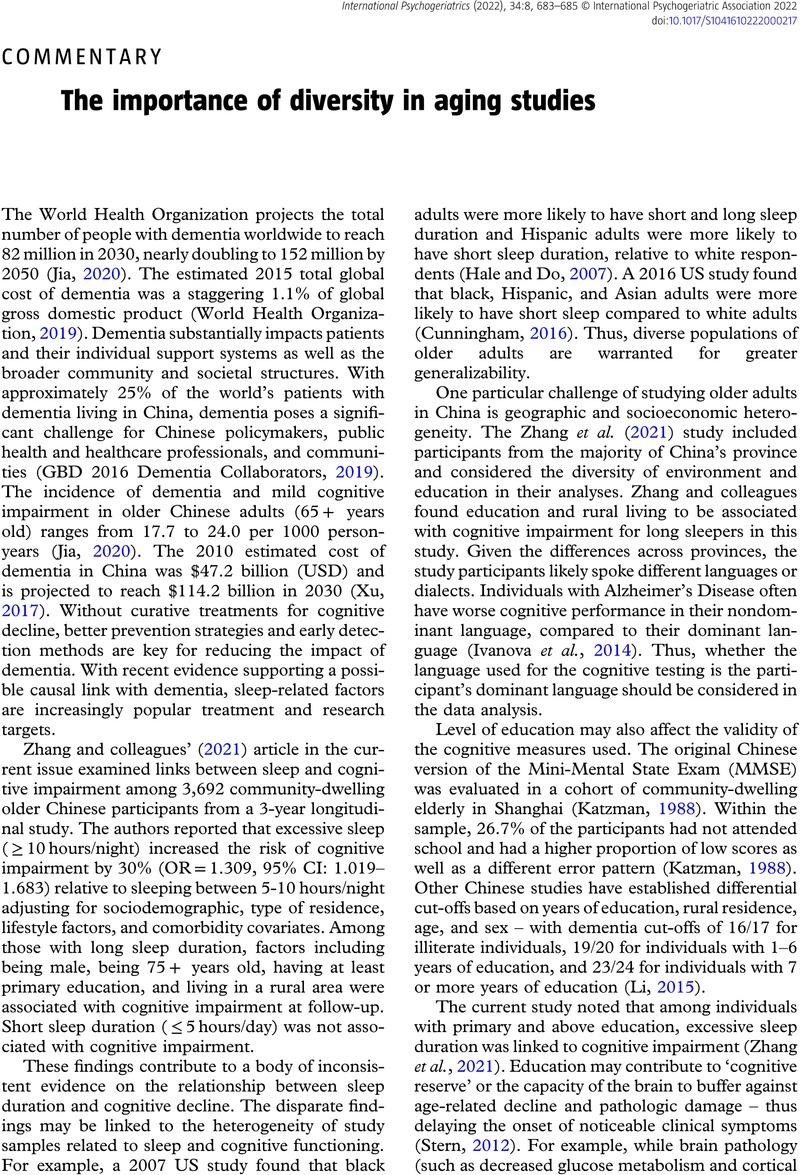Crossref Citations
This article has been cited by the following publications. This list is generated based on data provided by Crossref.
Baruth, Joshua M.
Salgado, Manuel Fuentes
Joseph, Boney
Singh, Balwinder
and
Nunez, Nicolas A.
2023.
Association between sleep disturbances and mild cognitive impairment: Clinical and research considerations.
International Psychogeriatrics,
Vol. 35,
Issue. 8,
p.
403.



